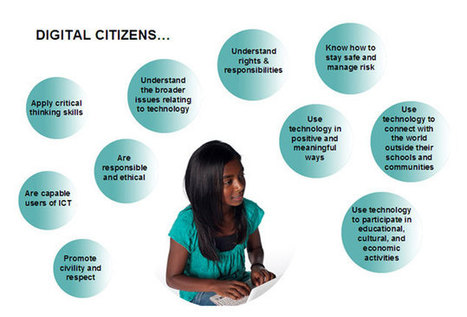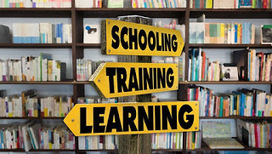This section looks at the various aspects and principles relating to digital literacy and the many skills and competencies that fall under the digital literacy umbrella. The relationship between digital literacy and digital citizenship is also explored and tips are provided for teaching these skills in the classroom.
Research and publish the best content.
Get Started for FREE
Sign up with Facebook Sign up with X
I don't have a Facebook or a X account
Already have an account: Login
Literacy in a digital education world and peripheral issues.
Curated by
Elizabeth E Charles
 Your new post is loading... Your new post is loading...
 Your new post is loading... Your new post is loading...
|
|












